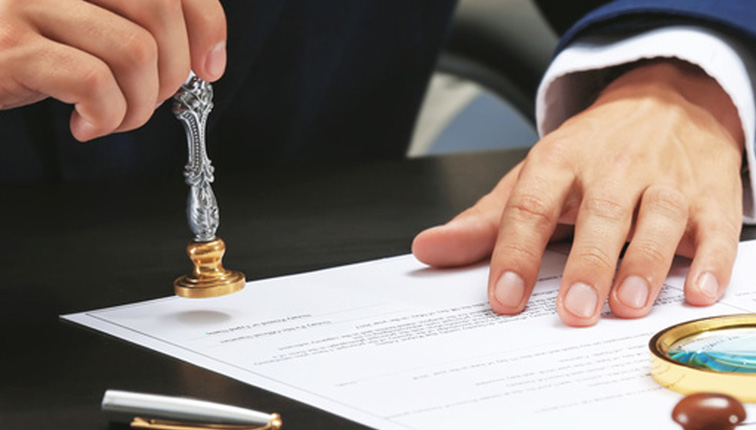Wednesday, February 18, 2026
Wednesday, February 18, 2026


Read Time: 8.7 minutes
While traveling
through the crowded, busy streets of Manila and Quezon City, you may have
noticed signage for notary public services. What are notary publics, notaries,
or "notary" services, and are those found along with shady corners
legit?
Let’s explore the
ten facts about notary publics in the Philippines. Find out how to identify the
good from the bad in this short but helpful guide.
A notary public
must be a lawyer. The 2004 Rules of Notarial Practice state that the notary
public should have passed the bar exams, taken oath, and belongs to the roll of
attorneys.
A notary is a
lawyer with good standing and has no convictions in the first instance for any
crime under moral turpitude. With these requirements, you may now gauge if
those notarial services set up in alleys, dark corners, and in front of city
halls are legit?
These people are
likely just agents of a lawyer. The lawyer lets these people use his name and
even sign documents on his behalf. A dangerous practice and could be risky for
clients.
Therefore, if you
need notarial services, try to check if the name of the law office or notary is
listed. Look for the notary public's name from this official
list of lawyers from the Supreme Court of
the Philippines.
There are numerous
requirements, certifications, and clearances to become a notary public and to
receive notarial commissions in the Philippines. First, you must pass the board
exams and be listed in the roster of lawyers.
Afterward, you must
file a Petition for Notarial Commission from the Regional Trial Court Executive
Judge. The RTC should be located in the area where you intend to provide
notarial services.
A summary hearing
will be conducted regarding your notary public application. If there's no one
to oppose your application, you will be provided with a certificate that will
allow you to receive a notarial commission for two years. This duration may be
revoked earlier, or you may resign from your position.
Different types of
documents may be notarized. A notary public's job is to assess the genuineness
of all the signatories in a document. He authenticates documents and verifies
the execution and thus, making these documents usable in court as evidence. Therefore,
administrative agencies, courts, and the general public must rely on the
acknowledgment of a notary public.
Notary public
sanctions oaths and affirmations, acknowledgments, signature witnessings, copy
certifications, and other legal acts authorized by the Rules of Notarial
Practice. He is licensed to authenticate signatures using a thumb mark or any other marks made on a
document. If the person seeking notarial services cannot sign, a notary public
may sign on his behalf on any document.
A notary public is
only authorized to notarize documents in his applied jurisdiction. A notary
public from Manila cannot provide services in other cities or provinces.
However, there are some exceptions under the Rules of Notarial Practice.
He cannot notarize
a document if the signatory is not present at the time. He is not allowed to
notarize a document with an unverified signatory. The notary public must ask
for proof of identification before acknowledging a document.
A notary public is
not allowed to notarize any document belonging to his immediate family members,
descendants, relatives, or affinity to the principal up to the 4th civil degree. He should not receive any fees,
commissions, advantages, cash, or gifts due to the acknowledgment of any
document.
A notary public
relies on valid IDs and other documents as a requirement for notarization of
any document. Under the Rules, the following IDs are valid.
●
Passport
●
Driver’s
license
●
PRC ID
●
NBI
clearance
●
Police
clearance
●
Postal ID
●
Voter’s ID
●
GSIS e-card
●
SSS ID
●
Philhealth
card
●
Senior’s
citizen card
●
Alien
certificate of registration card
Some people are
unable to provide a valid ID to confirm the genuineness of the documents. The
notary public will issue an oath or an affirmation of a 3rd party for anyone who personally knows the
person. The representative will need to provide proof of identification before
he is acknowledged in the document.
A cedula is not a
part of the IDs accepted by a notary public. This is included in the Rules of
Notarial Practice.
Secretaries,
agents, and representatives working under the notary public are not allowed to
sign on behalf of the notary. The notarial practice is non-transferable. If a
notary public practices this in your area, then they may be charged with estafa
or usurpation of authority.
A notary public may
acknowledge all types of contacts as long as there is consent, subject, and
cause included in the contract. The law also states that an agreement notarized
by a notary public should be in a specific format to be declared valid.
According to
Article 1358 of the Civil Code of the Philippines, the following contracts or
documents should be notarized:
●
Any act or
contract that transmits, creates, or modifies absolute rights on any immovable
property or the sale or interest in any real property. This includes documents
like Deed of Sale of Motor Vehicle, Deed of Sale of Real Property (acknowledged
by a real estate notary), Chattel
Mortgage, and Real Estate Mortgage.
●
Any kind of
repudiation or the renunciation of hereditary rights, especially those with
conjugal partnership gains. Documents like Donations, Waiver of Rights, and
Deed of Assignment are examples.
●
Any
document that administers property or any type of power that can prejudice a
third party, such as a Special Power of Attorney.
If a notarized
document is found faulty or defective, it may be nullified and will have no
effect. You may also need a lawyer to defend you in case charges are filed
against you in court.
Join our mailing list to get the latest list of our available units, promos and newsletter!